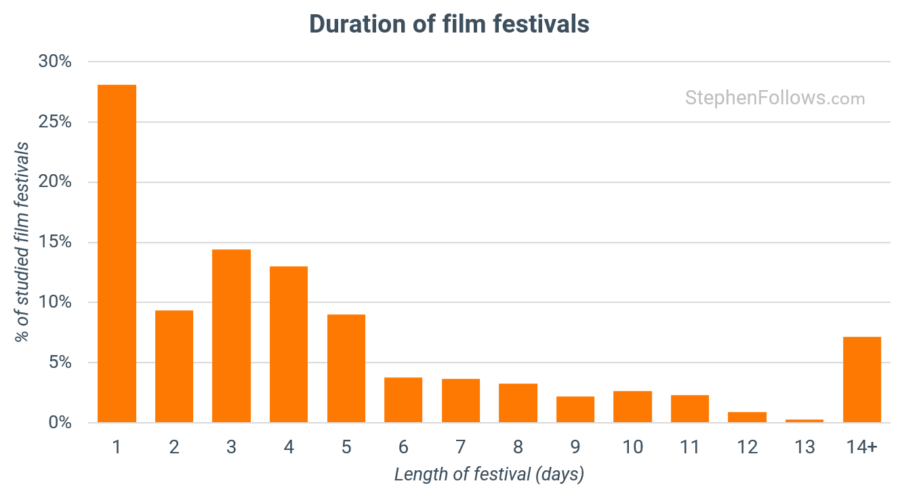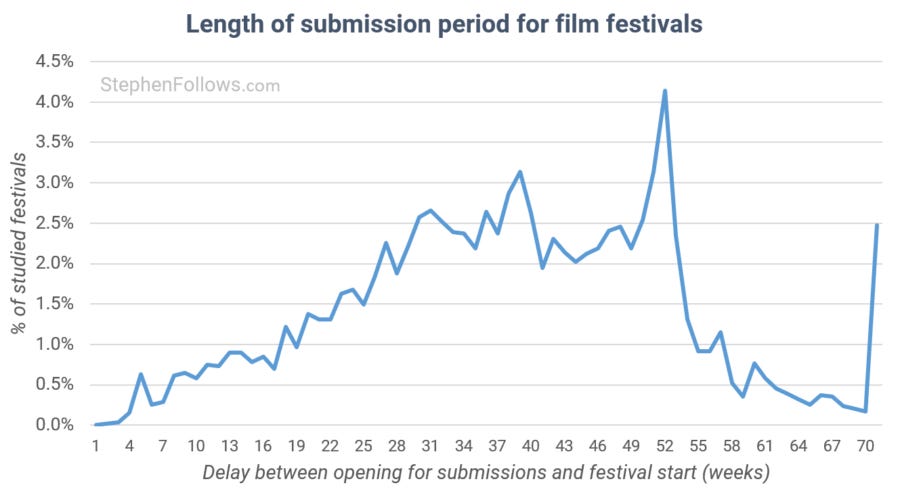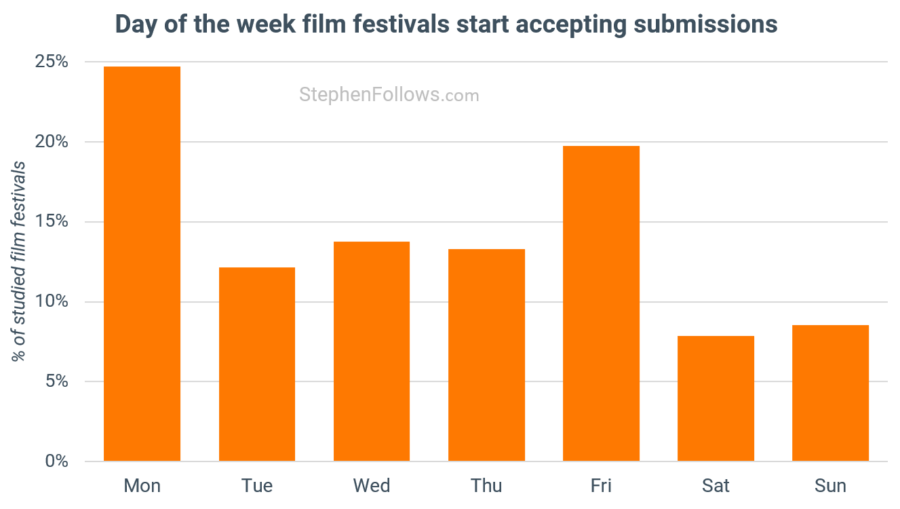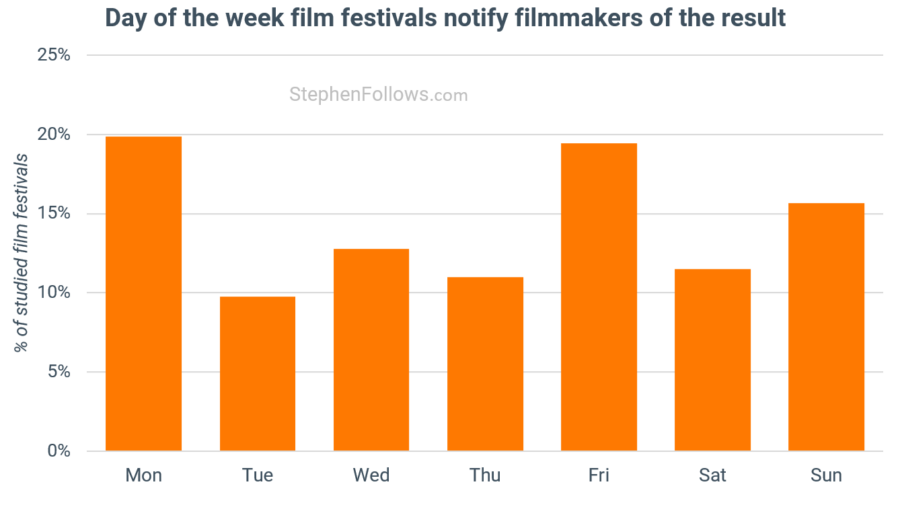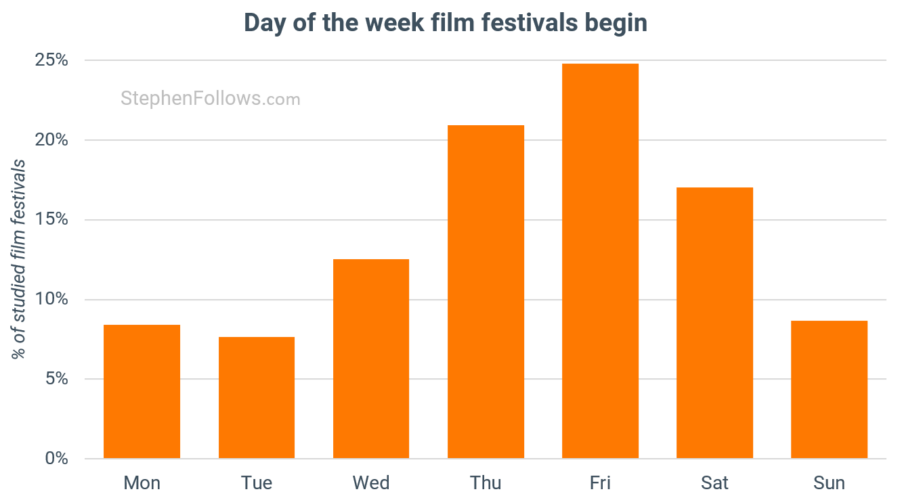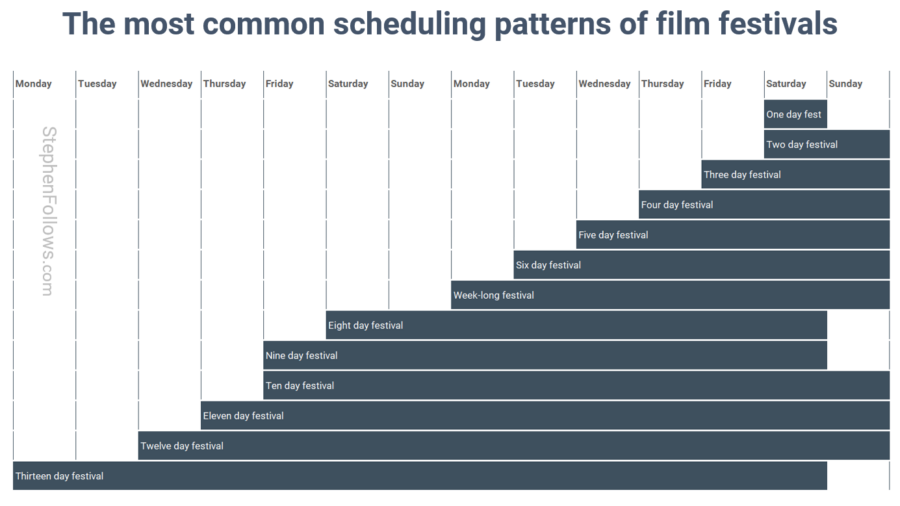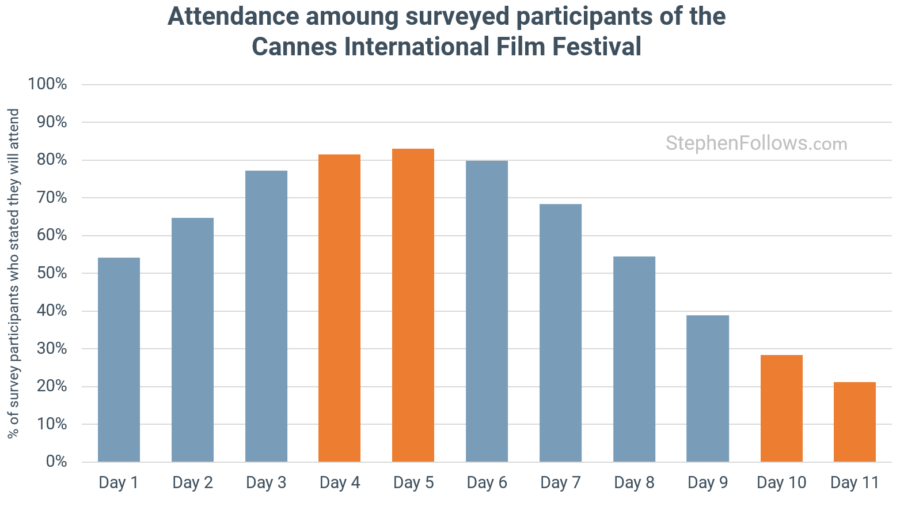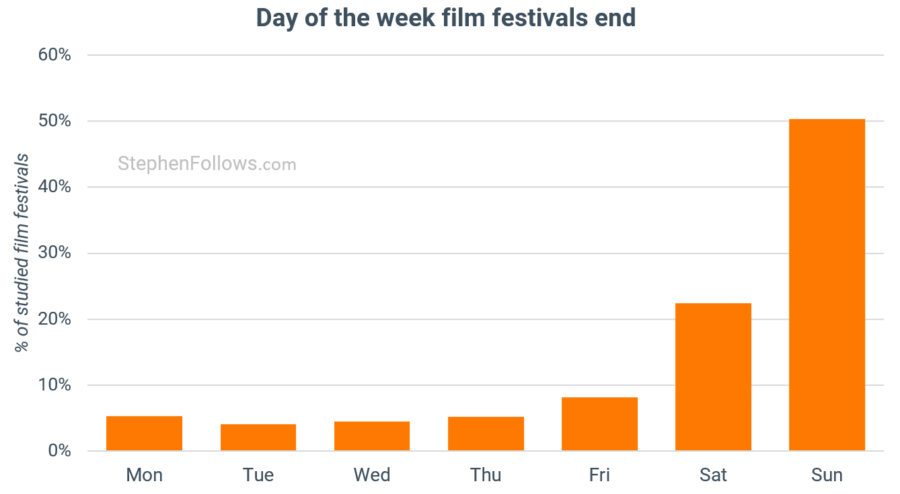What are the most popular days for film festivals?
Attending a film festival is an exciting experience. It can also be expensive, surprising, inspiring, trying, exhausting, exhilarating, unpredictable, frustrating, eye-opening, chaotic, rewarding, nerve-wracking, magical, and sometimes even life-changing.
This all starts with the decision of when to attend. Whether it’s Cannes, Sundance, or your local indie festival, understanding when a festival is at its busiest or slowest can help you make the most of your time. So, what are the most popular days for film festivals?
I built a dataset of 3,891 film festivals that either have or plan to hold an event this year. (As a side note – yes, that is a lot! It’s a topic for a different article, but holy moly, there are a lot of film festivals).
How long do film festivals usually run for?
The length of film festivals varies significantly, but the most common duration is just one day—representing 28% of festivals. These are often smaller, regional festivals with fewer screenings. After that, the next most common durations are three and four days, each representing 27% of the studied festivals.
Larger festivals, such as Cannes or Toronto, often last 10-14 days, but these longer events are less common, representing only a small fraction of all festivals globally.
A strong start…
78% of festivals start accepting submissions for at least six months before their festival runs. This will be for a variety of reasons, ranging from wanting to give filmmakers the best chance of making their deadlines and wanting to have multiple “late” deadlines as each usually sees an increase in the fees charged.
The most common pattern is to open for submissions a year before the festival runs, albeit there is a wide spread of submission periods across the dataset.
Monday is the most common day of the week for accepting submissions.
The best days for delivering good/bad festival news
Mondays are also the most popular day for festivals to notify filmmakers of their acceptance or rejection, with 20% of notifications happening on that day, followed closely by Fridays (19%).
Let the festivities commence!
Film festivals most commonly begin on Fridays, with one in four of the festivals I studied starting on that day. This makes sense given the focus on weekend attendance, allowing attendees to participate without taking significant time off work. Thursdays were also quite popular, with 21% of festivals choosing to begin then.
Interestingly, Mondays and Sundays are the least likely days for festivals to start, each accounting for less than 10% of the events. Festivals avoid starting on a Monday, likely due to the working week, and Sundays are often reserved for closing days instead of kick-offs.
What are the most common scheduling patterns of film festivals?
It seems that most festivals are aware that weekends present them with their best opportunity to drive attendance. Therefore, no matter how long a festival is, its start date will be chosen with the upcoming weekends in mind.
The chart below shows the most common patterns for film festival scheduling, depending on the length of the event. Half of all the festivals I studied appear on the chart below.
When should you attend a film festival?
Given how much effort film festival folk put into ensuring their event runs across at least one weekend, it naturally follows that Saturdays and Sundays tend to feature the most prestigious screenings and events.
This is reflected in patterns of attendance. Over the years, I have conducted a number of surveys of film professionals, including asking them on what days they intend to attend upcoming festivals.
I wrote a whole article focused on this a few years ago (Are film festivals busiest during the first weekend?) but I’ll include one chart below as it neatly illustrates the pattern we find at all major festivals – i.e. the first weekend is sacred.
A weak end
The eagle-eyed among you will have already spotted in the previous scheduling chart that the vast majority of festivals close their event on a Sunday. This aligns with the idea of offering a full weekend experience before attendees return to their regular routines.
Saturdays also see a notable number of festivals ending, with 22% wrapping up on that day. Midweek endings (Monday to Thursday) are rare, on average each accounting for less than 5% of the total.
Notes
Today’s article was actually a byproduct of a larger project I’m currently working on (to be published next month). I used publicly available data to build up a picture of the film festival landscape using Wikipedia, FilmFreeway, IMDb, FestAgent, FestHome, Click For Festivals, Short Film Depot and individual festival sites.
The post What are the most popular days for film festivals? appeared first on Stephen Follows.



